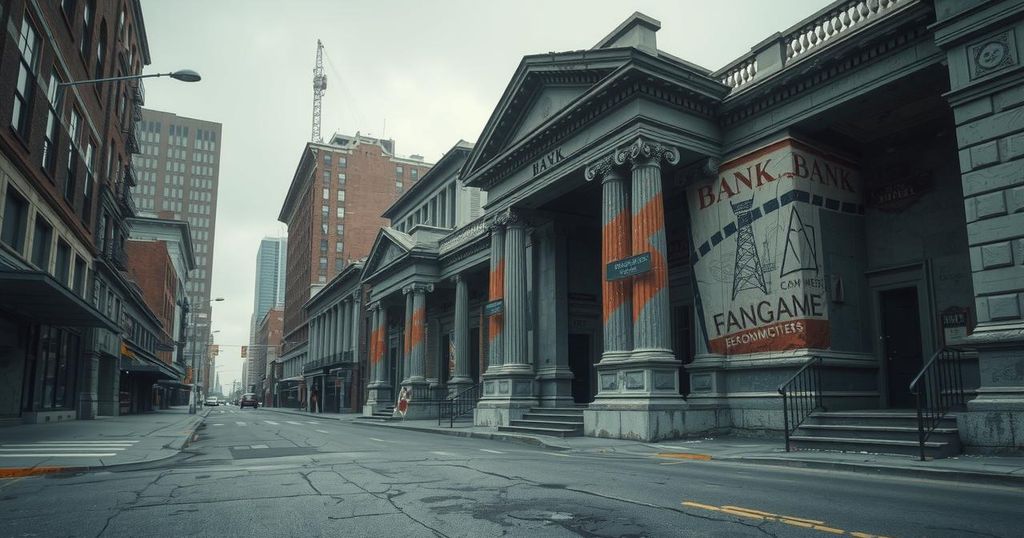Economic Analysis: Ghana’s Financial Challenges and Recovery Efforts
Joe Jackson of Dalex Finance stated that Ghana is financially strained, highlighting inadequate provisions for students and criticizing management of the cocoa sector. He noted positive signs of recovery in the financial sector. Professor Khalid supported this view, indicating improvements following signals from President Mahama. However, the President acknowledged deeper economic issues, including rising public debt and challenges in the energy sector, while affirming a commitment to restore fiscal discipline.
Joe Jackson, the Chief Executive Officer of Dalex Finance, remarked that Ghana is currently in a financial crisis, exacerbated during the previous Akufo-Addo administration due to the inability to meet debt obligations. He argued that the nation’s economic status is poor, citing that even senior high school students receive less than 2 Cedis for their daily meals, which is unacceptable. Jackson stated, “Ghana is broke and we continue to be broke. If you can’t pay your debt are you not broke?” This commentary was made during a discussion on TV3 regarding President John Dramani Mahama’s recent State of the Nation Address.
He further criticized the handling of the cocoa sector, claiming that it has severely hampered efforts to stabilize the Ghanaian cedi. Despite these concerns, Jackson observed some positive signs of economic recovery, particularly in the financial sector, where he noted improvements such as decreasing T-bill rates impacting the economy positively.
In a related discussion, Professor Sharif Mahmud Khalid, an Economic Advisor to the Vice President, echoed Jackson’s sentiments, indicating that the government inherited an overheated economy from the previous administration. According to Khalid, recent signals from President Mahama about reducing government size have positively influenced market responses, suggesting improvement trends in economic indicators.
During the State of the Nation Address, President Mahama highlighted the serious economic dilemmas facing the country, stating that the issues are more profound than previously acknowledged. He revealed alarming figures, including Ghana’s public debt, which has surged to GH₵721 billion, with considerable debts owed by vital state-owned enterprises such as the Electricity Company of Ghana and COCOBOD.
Furthermore, President Mahama detailed the challenges within the energy sector, which is facing a projected financial shortfall of GH₵34 billion for 2025 due to legacy debts and inefficiencies. He reiterated the continued struggle of the financial sector, despite previous government expenditure of GH₵29.9 billion for its cleanup, and emphasized the critical nature of upcoming debt servicing obligations totaling GH₵280 billion over the next four years. He asserted his administration’s commitment to restore fiscal discipline while implementing corrective measures to ensure economic stability.
In summary, Joe Jackson’s assertions about Ghana’s economic hardships reflect a consensus among analysts that significant challenges persist. While he and Professor Khalid noted some signs of improvement, President Mahama’s address reveals the depth of the economic issues, particularly concerning public debt and sector inefficiencies. The government aims to address these obstacles through fiscal reforms to revive the economy.
Original Source: 3news.com




Post Comment